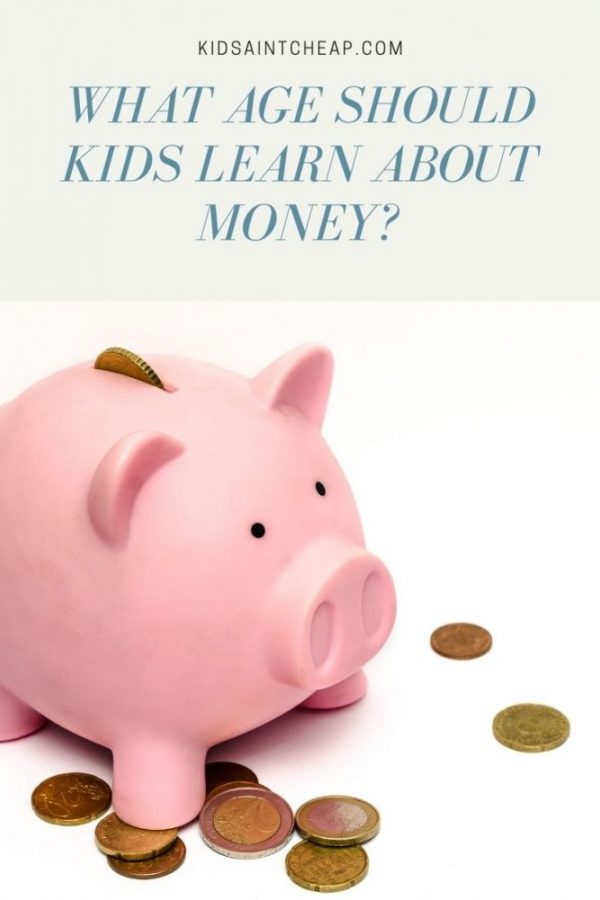What age should kids learn about money? That’s a difficult question because kids learning about money isn’t the same as, say, potty training. Kids continue to learn about money throughout their childhoods. However, having said that, your kids can begin to learn about money in the early preschool years and continue on from there.
How Preschool Kids Learn about Money
At this age, kids are watching you closely so set a good example. For instance, when you go to a grocery store, don’t reward your kids with a treat every time. If you do, they start to expect that you will just buy things for them.
Instead, create buy, spend, and save jars. If you want to pay them an allowance for chores, now is the time to start. You can set up a chore chart, and pay them for their chores. When you pay them, you can help them separate their money into the three jars. Let them use their spend money for little things they want to buy.
This is also a good time to get them money-related toys like play cash registers so they can get used to the concept of the different values of our coins and bills, spending money to buy something, not having enough money, and making change. Play store and grocery shopping with them frequently.
How Elementary Kids Learn about Money
Once your children learn the rudimentaries about money, it’s time to teach them more complex lessons. The grocery store is a great place to teach these lessons. You can teach about buying generics, price comparing different sizes of the same product, and the value of using coupons.
Kids this age will be earning more than they did as preschoolers, so you can also help them save for a large goal like an expensive Lego set they want to buy. You should also teach them that once the money is spent, it’s gone. Then, they need to work hard to earn more to save and spend all over again.
How Middle School Kids Learn about Money
At this age, kids are going to want to spend, spend, spend. This is the time to teach them, if you haven’t already, that you won’t buy everything they want. Just because your daughter wants new jeans when she already has enough doesn’t mean you’ll buy them. She can save her money and buy them if she really wants them.
You should also teach them about the power of compound interest. This helps them realize that if they delay spending today, compounding interest can help them have more money later.
How High School Kids Learn about Money
Now is the time when all your hard work teaching your kids about money comes to fruition. Rather than buying or giving your child a car, have them save for at least half of the price of a car.
Also, teach your kids about credit cards, how to use them responsibly, and how to avoid accruing debt.
Be very clear how much you can afford to pay for their upcoming college. Then, they can choose a college that is affordable, or choose one that costs more than you can afford. However, help them understand how accruing student loan debt can make it harder to achieve their goals in adulthood.
Final Thoughts
Throughout your child’s life, you should be teaching them money lessons. As they age, these financial lessons should become more specific. If you’ve done your job well, by the time they leave home, they’ll be able to make smart money decisions. However, if your child makes foolish money decisions, know that you’ve laid the ground work so they know how to improve their financial situation should they need to.
Read More
Teach Your Child About Money–Free Savings Chart for Kids
Parenting Win–Teaching Money Skills to Your Kids
Games That Teach Kids about Money
Best Places To Sell Rare Pennies
Melissa is a writer and virtual assistant. She earned her Master’s from Southern Illinois University, and her Bachelor’s in English from the University of Michigan. When she’s not working, you can find her homeschooling her kids, reading a good book, or cooking. She resides in Arizona where she dislikes the summer heat but loves the natural beauty of the area.

Leave a Reply